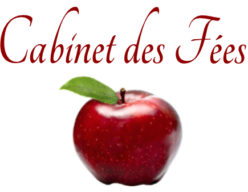 Finally! The latest issue of Scheherezade’s Bequest and its companion non-fiction articles are online. This issue was a long time in coming: due in September, posted in December — somewhere along the way we got lost in the woods and for that, we apologise. First let’s talk about the fiction. This 14th issue of Scheherezade’s Bequest is dark like the longest night, humorous and difficult and full of everything that makes a fairy tale real. These stories and poems hearken back to the original tales, and this issue is not for the faint of heart.
Finally! The latest issue of Scheherezade’s Bequest and its companion non-fiction articles are online. This issue was a long time in coming: due in September, posted in December — somewhere along the way we got lost in the woods and for that, we apologise. First let’s talk about the fiction. This 14th issue of Scheherezade’s Bequest is dark like the longest night, humorous and difficult and full of everything that makes a fairy tale real. These stories and poems hearken back to the original tales, and this issue is not for the faint of heart.
Nandini Dhar opens with a Kiranmala poem, “after the classic Bengali fairytale Arun-Barun-Kiranmala compiled by Dakshinaranjan Mitra Majumder in his Thakumar Jhuli (Tales from Granny’s Bag)”. In “Kiran-Katha: Tongue Memories” we see young Kiranmala, or Kiran, reflect upon her place in Brahmin society. From there we meet “An Ifrit in San Francisco” in a haunting short story by Andrea Blythe. “Little Ginger Bread Man” by Jamie Wasserman is a truly heart-breaking interpretation of AT 2025. John Patrick Pazdziora returns to Scheherezade’s Bequest with the delightful “Bradie Law and the Grumpenmire”, a trickster tale in the snake oil tradition. “Salt” by Joanna Hoyt takes us back to the traditional fairy tale with her retelling of “The Goose-Girl at the Well”, in which the heroine must deal with the terrible cost of great beauty. Rose Lemberg’s loving long-poem “Kytgy and Kunlelo” reinterprets a Chukchi folktale cycle about these two heroes, telling the story of the shaman-child Kytgy and how she births the world. Sara Cleto gives us a “Bone Song”, a cautionary tale about what can happen if we ignore the fact that a beast is a beast. JoSelle Vanderhooft weaves a fairy tale poem of mothers, step-mothers and daughters in “Blood, Snow, Birch and Underworld”, a coming of age of a girl named Cipher. “The Witch of the Third Night” by Alexandra Seidel describes the making of a witch; with familiar tones of Baba Yaga and Rumpelstiltskin, Seidel spins a poem all her own. Next is an original fable by Hal Duncan, “The Wolf and the Three Wise Monkeys”, a very timely tale told with scathing wit and charm. Finally Brittany Warman closes with “Grateful”, a short poem that concisely sums up what women have been wondering for a long time.
On the non-fiction side we’ve got essays and articles that tackle difficult social dilemmas from various points of view, as well as reviews of fiction, non-fiction and music. Scheherezade’s Bequest co-editor Virginia M. Mohlere interviews Kirsty Greenwood, the multimedia artist whose work was featured in the cover of our previous issue, while Erzebet speaks with artist Catherine Rémy, whose work graces the cover of the 14th. Tanya B. Avakian has reviewed Blue Hour by Carolyn Forché, A Life in Secrets: Vera Atkins and the Lost Agents of SOE by Sarah Helm, and Let England Shake by PJ Harvey. Virginia M. Mohlere reviews Skellig by David Almond while co-editor Donna Quattrone looks at The Silence of Trees by Valya Dudycz Lupescu, and review contributor Valentina Cano offers her thoughts about Mermaid: A Twist on the Classic Tale by Carolyn Turgeon.
In an essay that is both fiction and non-fiction, Lyz Reblin suggests what extra-terrestrial life might think should it encounter some of our beloved fairy tales in No Happily Ever After for XX: The Obligation for the Feminine Gender of the Human Species in the Western Region of the Planet Earth. Elizabeth Hopkinson discusses a much-overlooked aspect of human nature in her revealing “The Glass Coffin” and “The Ensorceled Prince”: An Asexual Reading, while author Sophie Masson delves deep into fairyland with Captive in Fairyland: The Strange Case of Robert Kirk of Aberfoyle.
So while this issue is late, we here at Cabinet des Fées believe it was very much worth waiting for. We hope you enjoy our offerings, and wish you all a joyous holiday season, wherever and whoever you are.
With love,
Donna Quattrone, Virgina M. Mohlere, and Erzebet YellowBoy
